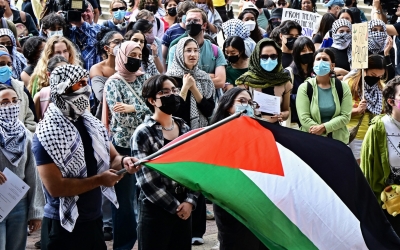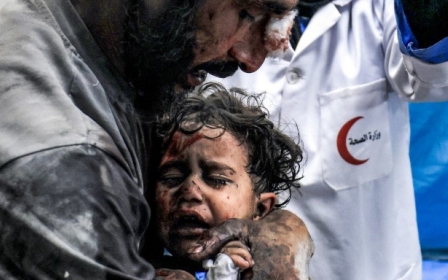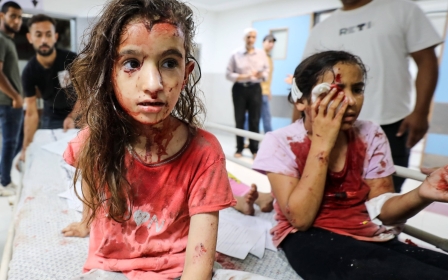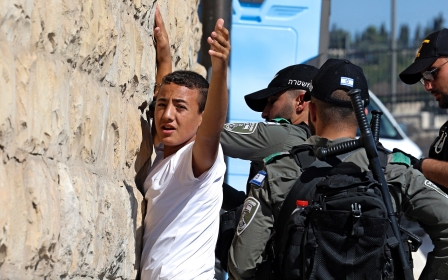US academics must speak up as colleagues and students in Gaza are slaughtered
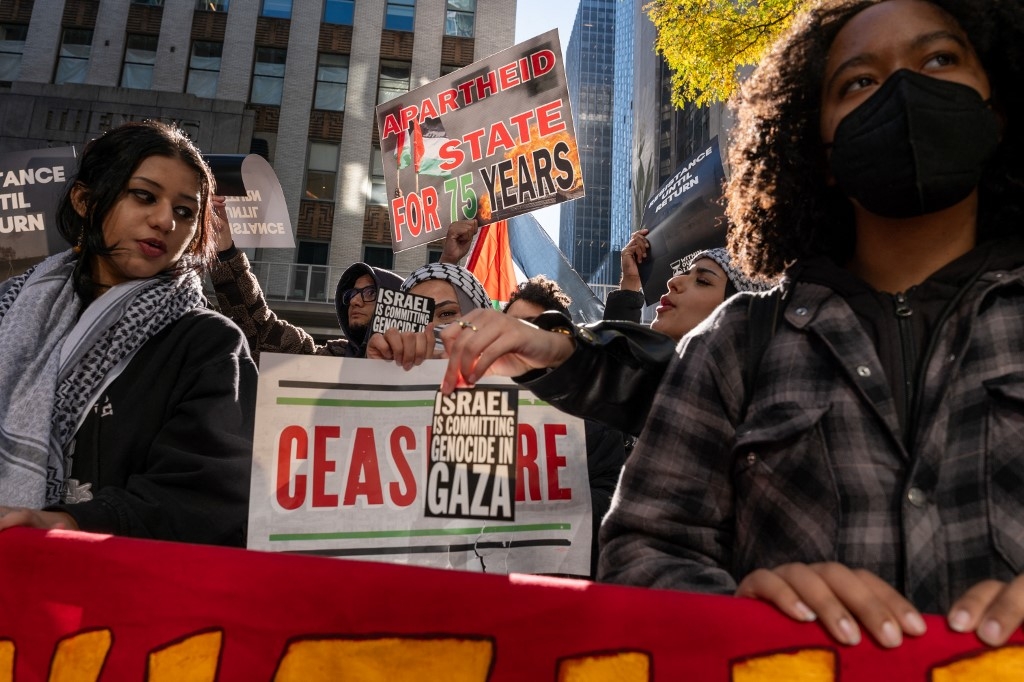
I was originally intending this piece to address the administrators of my own university, the City University of New York (Cuny), the largest public urban academic system in the United States. But I feel that the time has now come to address all university administrators.
I want to express my grave concerns over our inaction to make any statement - whether it be condemnation or even something as lacklustre as “concern” - regarding the deliberate destruction of universities and schools in Gaza by Israeli occupation forces, with arms largely provided by the US and so paid for by ourselves, US taxpayers.
This then is something that has a direct impact on our own austere budgets.
In many parts of the world, health workers have displayed their solidarity with the deliberate destruction of hospitals and healthcare facilities in Gaza.
But, at least to my knowledge, our universities have yet to publicly recognise the extent of the destruction of universities and schools in Gaza, and the implications this holds for continuing our own educational mission with anything even resembling integrity or ethical authority.
New MEE newsletter: Jerusalem Dispatch
Sign up to get the latest insights and analysis on Israel-Palestine, alongside Turkey Unpacked and other MEE newsletters
On 17 January, the University of Palestine was completely destroyed through controlled demolition and the detonation, according to reports, of 315 mines, leaving only rubble.
The Islamic University of Gaza, an institution similar to Queens College, Cuny (where I have been teaching for 34 years), with an enrollment of around 18,000 students, was destroyed on 11 October.
Deliberately targeted
At the time of writing, all universities in Gaza have been destroyed or damaged, with 4,327 students and 94 academics - including high-ranking administrators - killed and 7,819 injured.
Many were deliberately targeted, such as poet and scholar Refaat Alareer, professor of comparative literature (my original field) at the Islamic University. Professor Alareer stressed that his mightiest weapon was his white-board marker, and that he would hurl it at his attackers should they come for him.
Follow Middle East Eye's live coverage of the Israel-Palestine war
Unfortunately, he didn’t get that chance as he was incinerated on 7 December 2023, in a targeted strike that also killed his brother, his sister, and her four children. Like so many others we don’t know about, their bodies remain unburied, under the rubble.
In addition to the devastating damage inflicted on universities, 281 state-run and 65 UNRWA-run primary and secondary schools have been completely or partially destroyed, and 231 teachers and administrators killed.
How do we propose to proceed, as humans involved in academic life, if we let this go without comment?
What kind of role models will we be to our students? How do we dare declare ourselves citizens of the world, proud of the cultural and linguistic diversity of our students and their achievements, if we pretend these events haven’t happened and justify them by our silence?
What is the end result of following the logic deployed by Israeli policies, with full US support in the form of arms supplies, UN vetoes and political backing, that all Palestinian civilians and all their institutions are responsible for the events of 7 October?
Is this not the clearest formulation that “terrorism” supposedly acts under, that all civilians are responsible for acts undertaken by their political representatives?
What does this imply regarding US foreign policy and the dangers it puts our citizenry in?
Urgent call
Is this the road we want to continue going down? Is this how we want to be remembered, as people who turned their backs on humanity, on colleagues in other parts of the world, on students who could very well be our own?
Though it already feels too late in so many ways, this is still an urgent call to colleagues across the spectrum of political affiliation or allegiance, to take these questions seriously and find ways to address them in a public form.
Not to do so, to remain silent, will come back to haunt us, seeping into our work like a corrosive substance that will leave little of the spirit and mission that originally propelled so many of us into academic life.
The views expressed in this article belong to the author and do not necessarily reflect the editorial policy of Middle East Eye.
Middle East Eye delivers independent and unrivalled coverage and analysis of the Middle East, North Africa and beyond. To learn more about republishing this content and the associated fees, please fill out this form. More about MEE can be found here.



